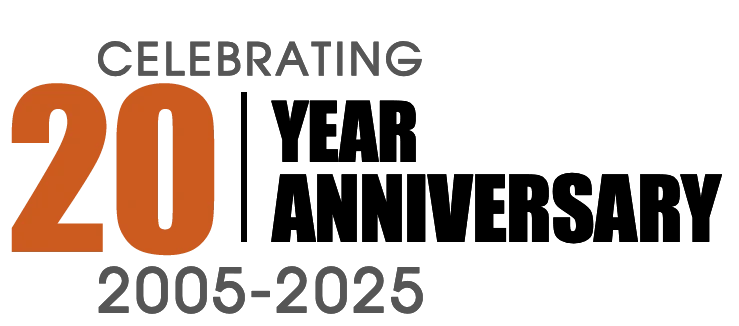Karla Guccione, Web Designer
Facebook to Monetize Connecting the World
 Even as Facebook currently enjoys recent gains in the stock market, questions continue to whirl in the media about how Facebook plans to satisfy investors in moving forward with a plan to monetize?
Even as Facebook currently enjoys recent gains in the stock market, questions continue to whirl in the media about how Facebook plans to satisfy investors in moving forward with a plan to monetize?
What does the monetization of Facebook really mean to its users? Is it possible that Facebook will require paid memberships, or will Facebook be able to satisfy its shareholders without asking it's members to foot the bill? This article reviews Facebook's stock performance history and explores the real mechanisms that Facebook is already implementing to monetize its successful social network.
Big Name Joomla Users: Leonardo Di Caprio, MTV and McDonalds
As reported on the Joomla Website, Lenoardo Di Caprio uses Joomla on his new site LeonardoDiCaprio.com.
 Leonardo Di Caprio is one of the most famous actors in the world. Leonardo has shown the ability to choose great roles, starring in movies from Inception and Gangs of New York to Titanic and Catch Me if You Can. It seems he can also choose great software. His new site LeonardoDiCaprio.com runs Joomla. This is a particularly interesting site in its design and its navigation.
Leonardo Di Caprio is one of the most famous actors in the world. Leonardo has shown the ability to choose great roles, starring in movies from Inception and Gangs of New York to Titanic and Catch Me if You Can. It seems he can also choose great software. His new site LeonardoDiCaprio.com runs Joomla. This is a particularly interesting site in its design and its navigation.
Who else uses Joomla? Leo joins the ranks of numerous other big names that use Joomla. Other big names that use the Joomla platform include Major Television Networks, Retailers, Car Manufacturers and even Government Agencies. Names such as McDonalds, Jaguar, Pizza Hut, MTV, Sony Pictures, Mexico City and even the United Kingdoms Ministry of Defense.
Are free website builders bad for SEO? ie Wix, GoDaddy Website Builder, Zenfolio
 As many business owners have come to realize, having a quality web site for your business is no longer an option, it is a requirement. Where many business owners have gone wrong, is in thinking that just a having a simple info page satisfies the “web site requirement”. The key word is quality, not just in regards to design but in regards to SEO!
As many business owners have come to realize, having a quality web site for your business is no longer an option, it is a requirement. Where many business owners have gone wrong, is in thinking that just a having a simple info page satisfies the “web site requirement”. The key word is quality, not just in regards to design but in regards to SEO!
I will get straight to the bottom line in saying: Using a FREE WEB SITE BUILDER such as Wix, GoDaddy’s Website Builder, Jimdo and Zenfolio provide only one true benefit to businesses on a budget, it is FREE. That single benefit of providing a “free website builder” is actually costing you more in lost revenues due to its weakness in Search Engine Optimization. Additionally, sites like Wix and Zenfolio cost much more on annual term to host. So your FREE WEB BUILDER is not exactly free. Compare Wix hosting with website at over $200 annually, to GoDaddy which will cost roughly $80 per year using Joomla or Wordpress.
K2 Blog Component for Joomla | Video Tutorial
 This article includes a brief video tutorial that demonstrates the function ability provided by the K2 blog component for Joomla.
This article includes a brief video tutorial that demonstrates the function ability provided by the K2 blog component for Joomla.
Blogging is an important factor in regards to Search Engine Optimization. As Google and other search engines seek content rich websites that are frequantly updated and visited by unique visitors. Therefore, utilizing ablog on your website is important.
When it comes to blogging on your Joomla website, AdverGroup Web Design in Chicago recomends using the K2 Blog Component developed by JoomlaWorks. Using K2, you can transform your Joomla! website to a news/magazine site with author blogs, product catalogs, work portfolio, knowledge base, download/document manager, directory listing, event listing & more, all this bundled under one package!
Error Code Solved: Joomla Admin Section Menu Manager Issue
JOOMLA ERROR SOLVED: Joomla Admin Section Menu Manager Issue.
After performing Akeeba Back ups and jump starting the back up on to a godaddy hosting package I was unable to update or access and menu items in the Joomla Menu Manager of the administration section. This issue also surfaced after performing upgrades form past versions of Joomla to 2.5. Being that my clients website was hosted with Godaddy, I was required to communicate with Godaddy Technical support who conveyed that this is a common issue to which no solution has been achieved. After hours of troubleshooting with no help from GoDaddy Support (whose only advise was to rebuild the site from scratch), I was able to solve this issue!
PDF Viewer for Joomla | Flash Magazine Video Tutorial
This video tutorial demonstrates how to create a PDF that can turn pages. In order to achieve this function we have employed the use a component that was developed by http://www.joomplace.com. The Flash Magazine Deluxe Joomla Component provides an attractive page peeling effect for PDF viewing.
This Joomla! Flash Magazine component helps you to set off your online flash book, magazine or sales catalogue with special flipping pages effect. Users can manually list online magazine pages with the mouse cursor and navigate the content using user-friendly controls. There is a possibility to flip the book's pages in automated mode too.
Google Plus Local Replaces Google Places
 |
Yes, it is true that Google Places is no more! However the replacement of Google Places with Google Plus Local is a logical move for Google. As Google aims to topple Facebook and Twitter as the web’s leading online communities, “Google Plus” is their vehicle to do so. This article provides an in-depth look into Google and Google’s products that relate to Google Plus and Google Plus Local. If you can afford a moment to read this article, you will understand how significant the birth of Google Plus Local is, as it relates to Google’s big picture.
Why does it make sense for Google to enter the Social Networking arena? With the creation of “Google Plus” and now Google Plus Local, Google plans to merge all of their technology under one roof! Google has been strategically building their tools to dominate the online industry. After search engines, Google has been leading the innovative mapping industry with Google Maps. With Google owning the map market, you can assume that they have all the pieces in place to bring a “local” appeal to any social community they may be involved in developing.
Content Management Systems | Updating Your Own Website
With the advent of Web Content Management Systems, began an era where a regular person could easily update, edit, publish and modify a web sites content using a web based control panel. This means a person without web design training or expensive software programs could update their website as easy as posting status, text and images on social networking sites such as FaceBook or LinkedIN. A much added bonus is that, those who have developed their sites in a CMS no longer suffer from paying expensive hourly maintenance fees as they manage to keep their site up to date.
Features and function abilities of the various Content Management Systems differ from system to system; many simpler systems showcase only a handful of features, while others are much more complex and powerful. The industry offers “Open Source” (Free & Community Driven) and “Proprietary” (PAID and Custom Developed) systems. Both Open Source and Proprietary Options offer pros and cons. Whereas Open Source options, such as Wordpress and Joomla have proven to be a more cost effective solution for many small business owners. While Proprietary Systems are custom developed resources that are built to achieve special function ability, security features and compatibility to offline systems. However in current times, it is a safe assumption that Proprietary software's role as the primary innovator in the global market is most certainly over. As I often say myself, “Why try to rebuild the wheel, this has been done before”. Being that Open Source solutions are community drivin, the envelope is constantly being pushed!
Website Copywrite | How it Impacts Search Engine Optimization
Before proceeding it is important to understand what "Copywrite" is and means: Copywriting is the act of writing copy (text) for the purpose of advertising or marketing a product, business, person, opinion or idea. The addressee (reader, listener, etc.) of the copy is meant to be persuaded to buy the product or service that is advertised, or subscribe to the viewpoint the text communicates.
Good web copy is developed in way that provides an easy and informative read for your website visitors, while frequently hitting on all the key words and phrases a search engine may seek when querying the internet. Sounds easy enough, right? ....well not exactly! Obviously humans digest web content differently than robot algorithms set to scan your site's content. The challenge in developing web copy that suits both search engines and site users.

